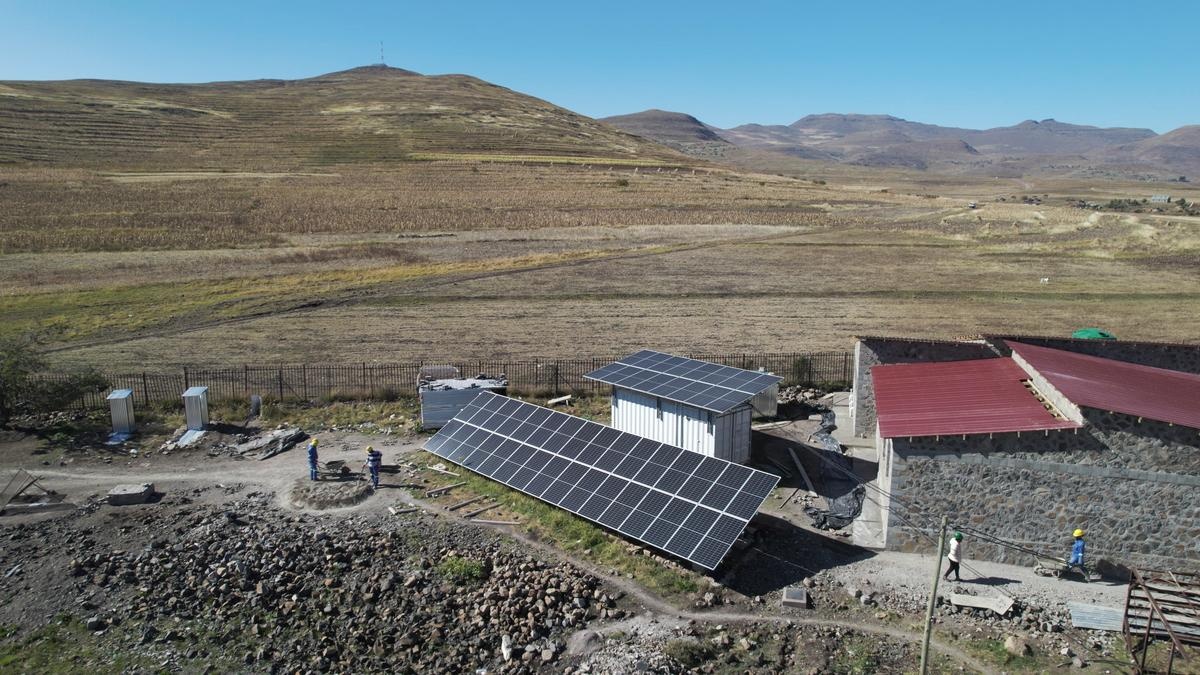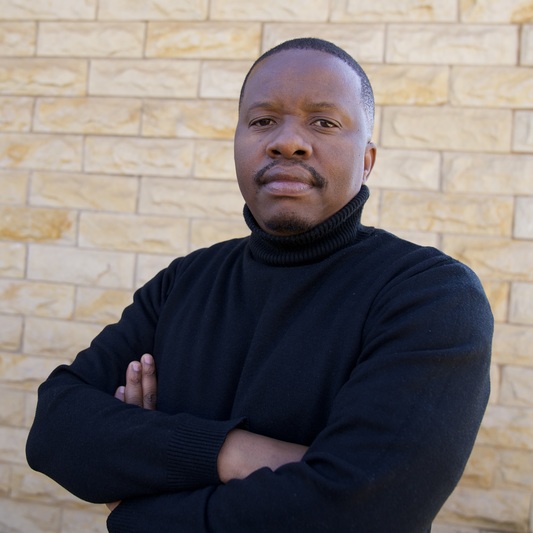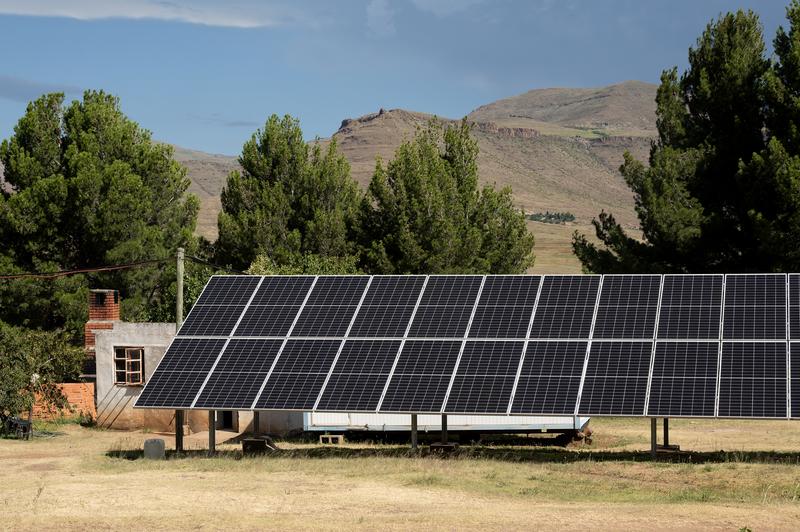Q&A: How Solar Power Is Improving Patient Care in Lesotho
PIH Lesotho's director of operations shares insights on country-wide solar project
Posted on Jun 27, 2024

Electricity, like medications and IV fluids, is crucial. Nurses need it to safely deliver babies. Lab technicians need it to operate diagnostic machines. And pharmacists need it to refrigerate vaccines.
Yet, many health centers in low- and middle-income countries do not have reliable—or in some cases, any—electricity. Until recently, that was true across Partners In Health (PIH) Lesotho’s seven Rural Health Initiative (RI) clinics.
Following the success of PIH-supported solar projects in Haiti and Peru, every RI site in Lesotho is now fully equipped with solar infrastructure, which has drastically improved care delivery.
We spoke with Bonang Mpinane, PIH Lesotho’s director of operations, to learn more about the impact of the country-wide solar project. Below, edited and condensed, are his responses:
What was the power situation at the RI sites before solar was installed?
Before 2022, we were powering all seven RI sites with diesel generators. It was a very unreliable and unclean source of electricity. Heavily relying on diesel was costly and logistically challenging to get to the rural health centers. It was difficult being fuel dependent. Even the vehicles that were transporting diesel also ran on diesel. It was very, very costly.
How did diesel-dependent power impact health care workers and patients?
Our health providers and patients experienced serious challenges in terms of operational constraints. We had frequent power outages in those centers, which negatively impacted care delivery. Imagine going into labor in the middle of the night and not having power. Nurses used to use gas lamps, which were not reliable. There was medical equipment, such as ultrasound machines, just sitting at some clinics because it couldn’t be used due to the unreliable electricity.

What’s the power situation now at the RI sites?
PIH Lesotho partnered with OnePower Lesotho, a renewable energy company, who installed solar power infrastructure across all seven RI sites. It was a very good opportunity for PIH Lesotho to overcome some of the challenges I highlighted. After completing the installation of the solar power systems at the end of 2022, we transitioned from diesel to solar power. We now have a sustainable and reliable source of electricity while avoiding most of the operational disruptions we used to experience. It was indeed a breakthrough for us as PIH in those facilities because we overcame the challenge of frequent power outages, which happened about five times a week on average and lasted for hours at a time. Now, we have a continuous supply of power.
There are still generators as backup power sources at the clinics. Given the geographical location of our health facilities, there are some days that they don't have sunlight, especially in winter.
How has solar impacted the budget?
There was a tremendous reduction in the expense of buying diesel because we no longer buy fuel as often as before. We also have maintenance savings because the upkeep for solar power infrastructure is much cheaper than maintaining the generators, many of which are more than 10 years old.
We used to spend about $700 on diesel alone per month at each RI site. That only includes diesel for the generators, not the vehicles. After the solar power system installation, we now spend about $350 on diesel per month at each RI site. There are other indirect costs, but overall, we are enjoying tremendous cost savings.

What are other positive impacts of the project?
We now have proper wiring, which is much safer. We’ve been able to invest in and use more medical equipment. Diagnosis and treatment for patients has improved because the machines are operational. Even the resource allocation, in terms of the money saved, can now be used for human resources, more equipment, and towards improving our overall essential health care services.

